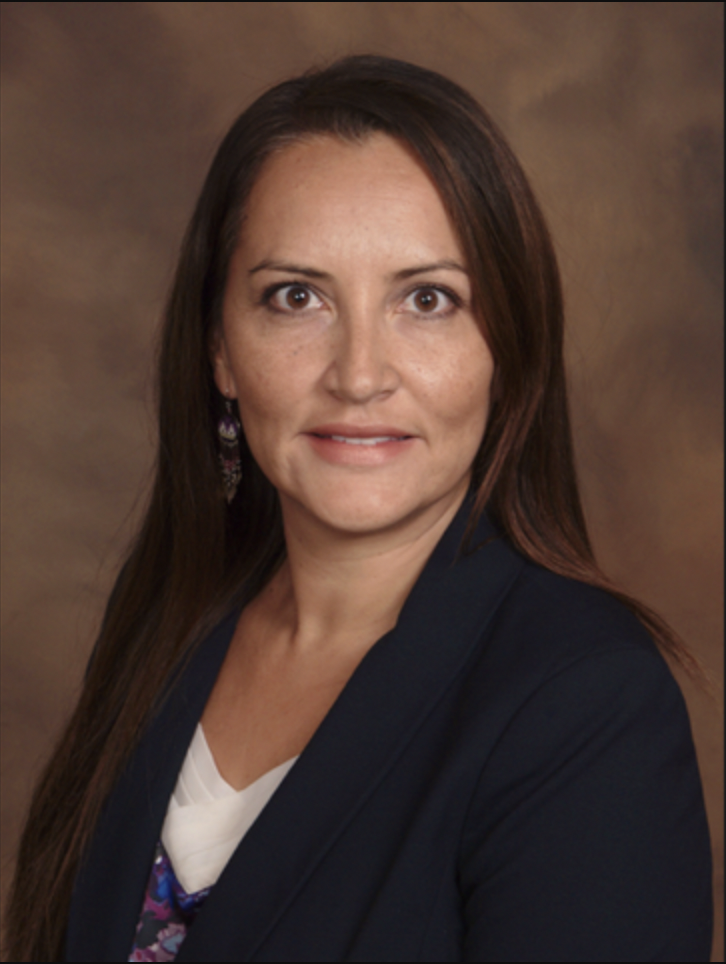President Joe Biden has announced 9 new federal judicial nominees, one of whom is a citizen of Navajo Nation.

Judge Sunshine Suzanne Sykes would be the first Native American Article III judge in California, the first Article III judge from the Navajo Nation, and the fifth Native American Article III judge actively serving in the United States. She is nominated for the United States District Court for the Central District of California.
Want more Native News? Get the free daily newsletter today.
Judge Sykes has served as a California Superior Court Judge on the Superior Court of Riverside County since 2013. She currently presides over a civil litigation department and is the presiding judge of the appellate division.
Judge Sykes received her J.D. from Stanford Law School in 2001 and her B.A from Stanford University in 1997. From 2001 to 2003, she was a staff attorney for California Indian Legal Services. From 2003 to 2005, Judge Sykes worked as a contract attorney for the Juvenile Defense Panel at the Southwest Justice Center. From 2005 to 2013, she served as a Deputy County Counsel in the Office of County Counsel for Riverside County, handling litigation on behalf of government entities and serving as a juvenile dependency trial attorney representing the California Department of Public Social Services on matters concerning abused and neglected children.
The National Congress of American Indians, based in Washington, D.C., was quick to praise President Biden's choice of Sykes.
“NCAI strongly supports President Biden’s nomination of Sunshine Suzanne Sykes, a citizen of the Navajo Nation and descendant of the Coyote Pass-Jemez Clan, to be the first-ever Native American judge to sit on the federal bench in the state of California,” National Congress of American Indians President Fawn Sharp said. “As the third Native woman in history to be nominated as a federal judge, Judge Sykes will bring unparalleled experience in law and policy to our justice system. NCAI urges the swift confirmation of Judge Sykes as the nomination moves before the U.S. Senate.”
The Native American Rights Fund (NARF) agreed.
NARF's Executive Director John Echohawk reacted to Wednesday’s news by saying, “Judge Sykes possesses excellent qualifications to be a federal judge. She has extensive judicial experience and a strong record of public service. We applaud her nomination and urge her confirmation. She will be a strong addition to the federal judiciary in California.”
NARF and NCAI have long advocated for increasing Native representation in the federal court system. It is imperative to have federal judges who understand the unique relationship between the United States and tribal nations and who reflect a more diverse swath of the districts that they serve.
More Stories Like This
Native News Weekly (August 25, 2024): D.C. BriefsCadiz, Inc. Announces EPA Selection of Mojave Groundwater Bank Northern Pipeline Project for WIFIA Loan Application
Jesse Jackson, Who Bridged Civil Rights Struggles for Blacks and Native Americans, Dies at 84
SAVE THE DATE: GVSU’s “Celebrating All Walks of Life” Powwow Set for April 4th
Monday Morning: (February 16, 2026): Articles You May Have Missed This Past Weekend
Help us defend tribal sovereignty.
At Native News Online, our mission is rooted in telling the stories that strengthen sovereignty and uplift Indigenous voices — not just at year’s end, but every single day.
Because of your generosity last year, we were able to keep our reporters on the ground in tribal communities, at national gatherings and in the halls of Congress — covering the issues that matter most to Indian Country: sovereignty, culture, education, health and economic opportunity.
That support sustained us through a tough year in 2025. Now, as we look to the year ahead, we need your help right now to ensure warrior journalism remains strong — reporting that defends tribal sovereignty, amplifies Native truth, and holds power accountable.
 The stakes couldn't be higher. Your support keeps Native voices heard, Native stories told and Native sovereignty defended.
The stakes couldn't be higher. Your support keeps Native voices heard, Native stories told and Native sovereignty defended.
Stand with Warrior Journalism today.
Levi Rickert (Potawatomi), Editor & Publisher

